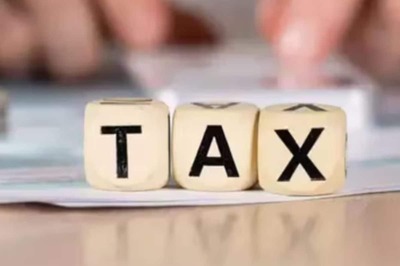
views
CHENNAI: Just out of law college and enrolled as a member of the Bar association in your city? Congratulations. You can practise at the Supreme Court straight away if you find a litigant willing enough to trust your skills at the highest seat of law in the country, according to a section of the legal fraternity in the city. In fact, you can also argue your client’s case in any court in the country. No kidding.It was a window of opportunity that was created, but shut 50 years ago. That window has just been thrown open with the notification of Section 30 of the Advocates Act. The section that came into force from Wednesday last (June 15) promises to change the dynamics in the legal fraternity by creating a level playing field for professionals across the country.Way back in 1961 when the Advocates Act was enacted and added to the statute book, Section 30 was withheld. As a result, in certain courts and tribunals, lawyers could appear only if the presiding officers permitted them to do so. Also, the appearance of advocates was banned/restricted in labour courts, family courts and industrial tribunals as it was felt that it would translate into unnecessary expenditure for poor litigants.Call it a kind of caste system if you want. It was broken after a series of representations from advocates across the country; and a recent judgment of Justice Markandey Katju of the Supreme Court gave the final push for the notification.No wonder, advocates in Chennai are elated. “A long pending demand for 50 years has been finally fulfilled,” says S Prabakaran, President of the TN Advocates Association and a representative of the Bar Council of Tamil Nadu and Puducherry to the Bar Council of India in New Delhi. Prabakaran, who is also the vice-chairman of All India Bar Association, had been seeking the notification from the government for long.According to D Selvam, the newly elected chairman of the Tamil Nadu Bar Council, the statutory body governing legal education and the profession in State, the notification will remove language barrier and enable advocates to appear in any court in any State. Minorities in each State could now seek the help of advocates who can converse in their own tongue, the Bar Council chairman adds.R C Paul Kanakaraj, President of the Madras High Court Advocates Association, describes it as a “highly welcome” decision. “Like right to speak and right to profession, lawyers have every right to practice anywhere in India and there can be no restriction.” Well said.“It is a boon to women lawyers,’’ says K Santhakumari, President of the TN Federation of Women Lawyers Associations. “It is a massive victory for lawyers, particularly women lawyers, who appear in family courts,’’ she adds.Members of the various Bar associations and advocates association in Vellore feel that the move would certainly help reduce the huge pendency of cases across the country. A section of the litigants too felt that they could now hire the best hands for their cases from anywhere and wanted the government to strengthen the judiciary system by filling vacancies in the courts correspondingly.B Annamalai, President of the Vellore District Lawyers Association and Vice-Chairman of the Tamil Nadu and Pondicherry Bar Federation, points out that the move had opened up more opportunities and professional space for the practising lawyers.Senior advocate Chandrasekaran, however, expresses fear that the notification might be a prelude to allow foreign lawyers to practise in the country. He also highlights the language constraint faced by most of the lawyers in Tamil Nadu. If they want to go to other states, they could still manage with English in the higher judiciary; but in lower courts they need to argue in the local language, Chandrasekaran points out. Sivagurunathan, a human rights expert, fears the move could squeeze the space for small time practitioners as they would face stiff competition from their senior counterparts even in lower courts and vice-versa. The positive side, according to him, is the wake-up call to advocates to equip themselves and upgrade their skills and knowledge to compete on a bigger platform.Legal academician and senior advocate T M Vijayaraghavalu, however, says the real advantage of the notification was that it had enabled advocates to appear in departmental disciplinary proceedings and tribunals initiated against the State, Central government employees or public sector undertakings, which hitherto had not been allowed.Arunkumar, a law student who graduated from the Vellore Law College this year, suggests uniform curriculum in all law colleges across the country to make the present notification of Section 30 more meaningful.




















Comments
0 comment